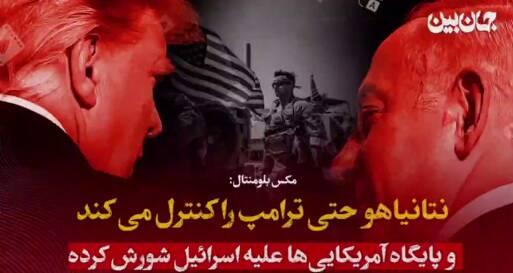Killing of conservative activist Charlie Kirk sparks wave of reactions across political spectrum
Killing of conservative activist Charlie Kirk sparks wave of reactions across political spectrum

Conservative activist and commentator Charlie Kirk, founder of the pro-Trump student organisation Turning Point USA, was shot dead on Wednesday during a public event at Utah Valley University in Orem, Utah.
Police confirmed the 31-year-old media figure was pronounced dead at the scene after sustaining fatal injuries. Details about the suspect and motive are still emerging, and an investigation is underway. Authorities have not yet released further information.
Kirk, 31, was fielding questions about gun violence at the event.
Kirk was one of the most recognisable young figures on the American right. He built a major following among conservative students through Turning Point USA, launched a podcast and radio show, and became a fixture at Republican rallies and conferences.
Following his death, Trump said in an address from the White House, “For years, those on the radical left have compared wonderful Americans like Charlie to Nazis and the world's worst mass murderers and criminals,” blaming the “radical left” for his death.
Controversial views on gun ownership
Among his most polarising positions were his comments on gun rights in the United States. Kirk often argued that the Second Amendment was absolute and non-negotiable, once stating that gun ownership should be “as common as car ownership”.
He opposed most forms of gun regulation and argued that arming more citizens was the best deterrent to mass shootings.
"It's worth it to have a cost of, unfortunately, some gun deaths every single year, so that we can have the Second Amendment to protect our other God-given rights," he said during an appearance at the Salt Lake City campus of Awaken Church on 5 April 2023.
After news of Kirk's death spread online, critics accused him of trivialising mass shootings, while his supporters praised him for being uncompromising in his defence of gun rights.
it's a joke to expect people to be respectful about Charlie Kirk, a vile man who excused mass shootings as an acceptable sacrifice for second amendment rights. he dedicated a career to facilitating gun violence, his blood is on his own hands
— lilybwees 🐝🪫 (@lilybwees) September 11, 2025
sympathy for the family, not him. pic.twitter.com/NvXY9BwFmn
Kirk’s comments often reignited national debates on whether free speech protections allowed figures with large platforms to promote views that could deepen divisions on sensitive issues.
Reactions across the spectrum
Kirk’s killing prompted an outpouring of responses across ideological lines, with politicians, commentators, activists, and ordinary users weighing in. Many condemned the act of violence outright, while others reflected on his controversial legacy.
btw, according to Charlie Kirk's logic, his death is his own fault, not the shooter's. pic.twitter.com/RraXXtK6v9
— Hassan Mafi (@thatdayin1992) September 10, 2025
Some said Kirk’s death underscored the dangers of political polarisation and the rise of political violence in the United States. Some young people on social media said they were “happy” because of his “disgusting beliefs”.
College students reacting to Charlie Kirk's d€ath
— The Resonance (@Partisan_12) September 11, 2025
“Charlie Kirk got shot and k!lled. How do you feel?”
GIRL 1: “Happy. Goodbye.”
GIRL 2: “He was a disgusting person with disgusting beliefs.”
GIRL 3: “Girl, someone had to do it.”🤐 pic.twitter.com/7A9PPc8YOX
Others argued that his rhetoric - especially on culture war issues - had already contributed to the current political climate, making the discussion of his legacy deeply contested. One social media user compiled his controversial ideas about Black people and his seemingly racist comments.
Charlie Kirk said black people were better off in slavery and subjugation before the 1940’s.
— Whooping feet (@WhoopingFeet) September 10, 2025
“It was bad & it was evil but they committed less crimes”
So I dnt wanna hear yall tears frfr pic.twitter.com/P9IyzzvN3A
Conspiracy theories spread online
Alongside condolences and tributes, Kirk’s killing has also sparked a wave of conspiracy theories online. Some began speculating about possible political motives, while others attempted to link the attack to international issues such as Russia’s war in Ukraine.
Fuck it, I'm happy to lose my entire follower base over this. Charlie Kirk literally spread 🇷🇺Russian propaganda at every turn. His aim was to convince you that millions of Ukrainians in occupied territories should be genocided, and you are telling me to be sympathetic. pic.twitter.com/Z8seHgGwbC
— Richard Woodruff 🇺🇦 (@frontlinekit) September 10, 2025
Other conspiracy theories centred around Trump and Israeli Prime Minister Benjamin Netanyahu “coordinating their messaging and posts to match during the Charlie Kirk assassination”.
Some online went so far as to claim that "Mossad/CIA killed Charlie Kirk because he was starting to privately question the state of Israel's actions", based on his Israel-related X polls the past few months, showing a strong anti-Israel stance from his followers".
I'm pretty sure Mossad/CIA killed Charlie Kirk because he was starting to privately question the state of Israel's actions.
— Tanuki (@TanukiLives) September 10, 2025
All of his Israel-related X polls the past few months showed a strong anti-Israel stance from his followers.
This probably started his JQ journey... pic.twitter.com/JNVcCnJV6W
No evidence has been presented to support these theories. Authorities have not suggested any international connection, stressing that the investigation is still in its early stages.
Still, the speed at which such claims spread reflected the highly polarised environment around Kirk’s career.
For years, he was a lightning rod in online culture wars - and his sudden death has only amplified the swirl of speculation, from mainstream political commentary to fringe narratives.
Whether praised as a fearless conservative voice or criticised as a provocateur, Kirk had an outsized influence on American political discourse. His sudden death leaves behind a legacy that will seemingly continue to polarise debate over free speech, gun rights, and the role of media personalities in US politics.






